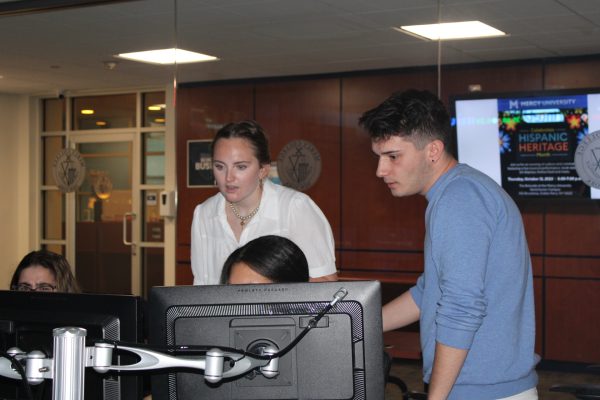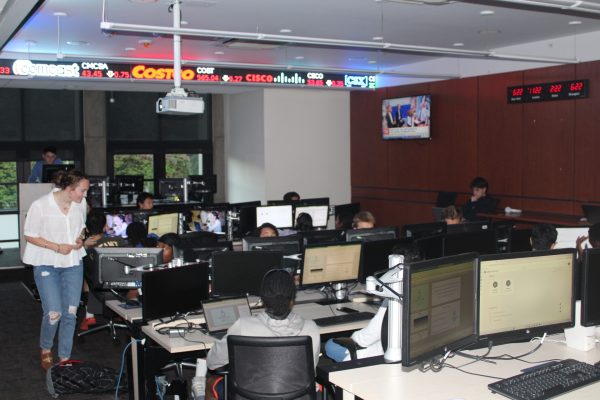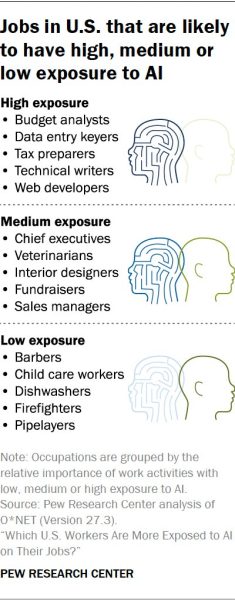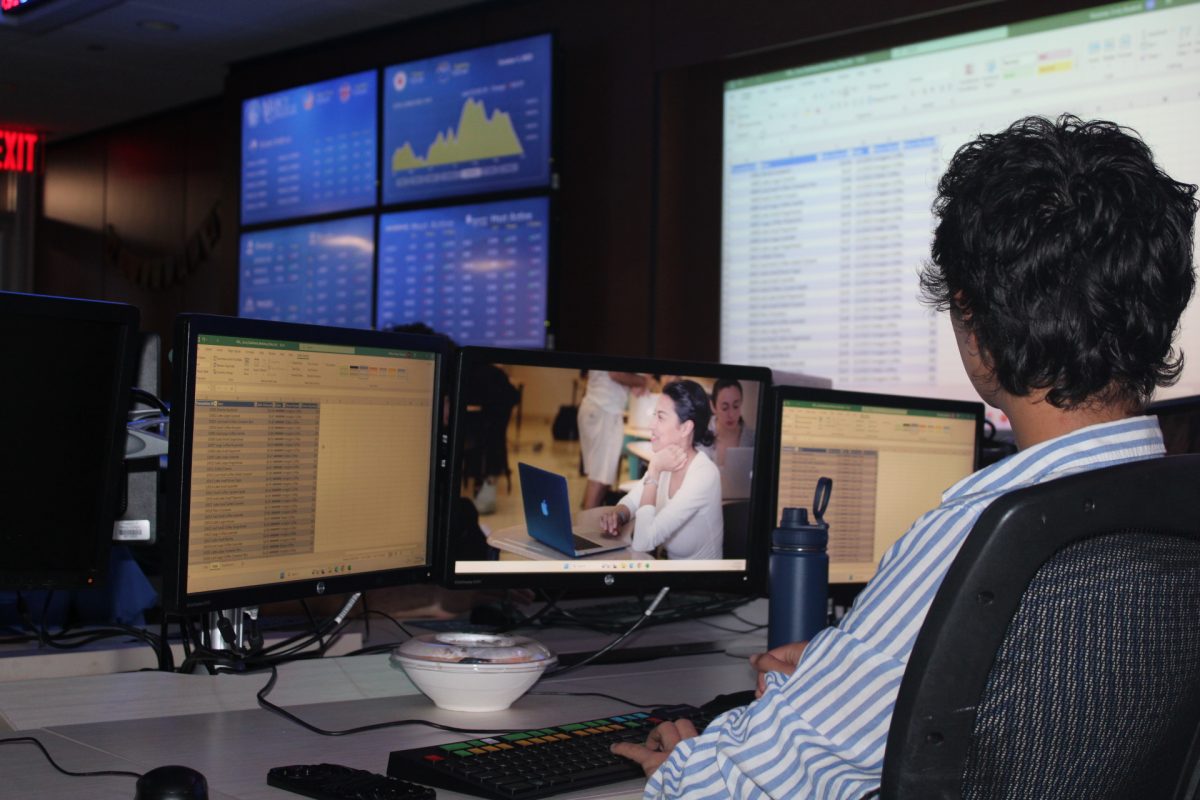Data is collected on people as consumers every single day. Whether it be McDonald’s trying to figure out why one buys chicken nuggets at the drive-thru at night the most or TikTok trying to push ads that pertain to people’s wants and needs.
Mercy’s Data Analytics Society was relaunched by Presidents Emily Mozdziak and Dakota Saja with the help of Prof. Emily Goldman to teach data skills that can be used outside the classroom and in everyday life. The society aims to allow members to gain practical skills, network with professionals and peers, boost their resume, and stay updated on industry trends.

Goldman said, “It is so wonderful that Mercy students have created an environment for all students to learn about data, and how to work with it.”
She added, “In addition to workshopping different tools, like Excel dashboards, Tableau, SQL and R, they are also showing students how to think about data problems. I’ve personally been inspired by their ambitions, both through the DAS club and in class.”
Mozdziak and Saja are actively looking to grow the society this academic year. When looking for more members, Mozdziak said, “The first word that comes to mind is open-minded.”
She continued, “I came into Mercy not studying data because I felt that I couldn’t do it. I didn’t think there was a spot for me in that genre and that I couldn’t work with data and numbers and learn how you can use data.”
However, this was not the case. Data is open to anyone in any field or major. Saja added, “We definitely are trying to mold an open-minded group and allow people to speak, be involved, and actually do something.”

Last semester, Samantha Karpiloff, Mercy’s Associate Director of Career & Professional Development, was a guest speaker at a Data Analytics Society meeting.
She said, “Data skills are becoming more and more necessary to have for any job in business. Companies are making data-informed decisions to run their operations, and they’re realizing it gives them a competitive advantage. If you’re able to interpret and draw conclusions from data, you are a sought-after candidate!”
An example of data analytics that has been widely applied recently in the life of college students is chatGPT.
Saja commented, “I personally think chatGPT is the best tool to get rid of human error.”
He continued, “In terms of data, sometimes your code will not work, for example, in R. AI can assist you with that because it’s tailored to what you’re doing.”
Saja was even able to utilize its data to find specific sources for his data-related capstone project.
Mozdziak added, “When I use data in the environment I’m in now, which is my life, I always think it’s a solid foundation to back up what I say or do.” She even compared this idea to real-life situations. For example, in high school if a teacher asked why you were not in class, you could back up this information by saying your homeroom teacher, your source, allowed you to leave.
How will this affect your career?

As demonstrated by the chart on the left, AI will likely have an impact on multiple career fields in the future, the highest exposed including data entry keyers.
The Data Analytics Society hosts meetings every other Tuesday hybrid where they will be hosting more skill workshops, guest speakers, and a trip to a corporate office in New York City in the works. Goldman said, “We can all benefit from being familiar with data, because then we can use it to make informed choices in school, at work, even at home.”
If you are interested in becoming a member, you can attend three meetings found posted on their Instagram or on Mercy’s Engage.










